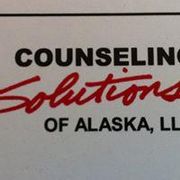5 Tips for Coping With Post-Traumatic Stress Disorder

Many situations and events in life can cause post-traumatic stress disorder, or PTSD. Members of the military are often diagnosed with the condition, as are survivors of serious accidents or any other kind of abuse or violence. PTSD is the body’s response to traumatic events, with symptoms including mood swings, insomnia, feelings of disconnection and numbness, flashbacks, and antisocial behavior. If you have experienced any of these symptoms or similar ones following a traumatic event, find healthy coping mechanisms that help you enjoy positive relationships below.
5 Ways to Cope with PTSD
1. Learn More About the Condition
To help you identify your symptoms and what you can do to manage them, make sure to learn more about the condition. The more you know about PTSD, the more you can explain your mental and emotional state to your loved ones. Online forums and workshops at local clinics provide comprehensive information about the condition.
2. Practice Mindfulness
Start practicing daily mindfulness. Look into meditation options to help you feel balanced, and make a habit of recognizing negative thought patterns that upset you or trigger flashbacks. Begin slowly, such as by taking about two minutes per day to enjoy quiet reflection and build from there.
3. Get Support From Family & Friends
Rely on your favorite people for healthy distractions that keep you engaged in the moment instead of thinking about the past. Go for walks, play games, watch favorite television shows and movies, and do anything else together that is fun and positive.
4. Start Exercising
 Flood your brain with endorphins and other feel-good chemicals that decrease stress by starting an exercise regimen. Find what you love, such as kickboxing, dancing, swimming, yoga, or biking, to relieve anxiety and boost your mood. Since exercise increases your physical fitness, you get the bonus of feeling more confident.
Flood your brain with endorphins and other feel-good chemicals that decrease stress by starting an exercise regimen. Find what you love, such as kickboxing, dancing, swimming, yoga, or biking, to relieve anxiety and boost your mood. Since exercise increases your physical fitness, you get the bonus of feeling more confident.
5. Consider Stress Management Counseling
Find a reputable counseling center for professional post-traumatic stress disorder management. Work with a counselor you like and trust so you are as open and honest about your feelings as possible. Be proud of yourself for taking this self-care step and working toward living a healthy and happy life.
If post-traumatic stress disorder continues affecting your life, find healthy solutions with help from Counseling Solutions of Alaska. The Anchorage-based center’s licensed, professional counselors treat a range of mental and emotional health issues to make it clear to patients that they are not alone. Call (907) 644-8044 to schedule an appointment or learn more about the center online.
About the Business
Have a question? Ask the experts!
Send your question

